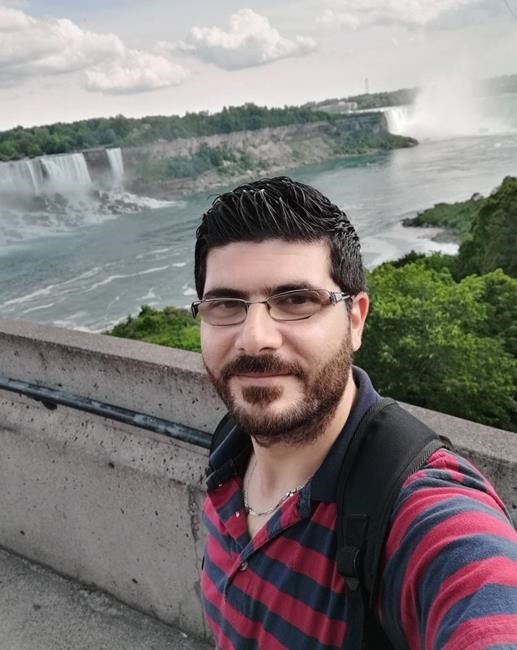OTTAWA — Ali Mansour spent his first two weeks in Canada watching through a window as winter give way to spring and squirrels ran across the lawn.
As one of the last refugees to arrive in Canada before the border closed due to the COVID-19 pandemic, it still felt like freedom.
"It felt like I was in a movie," he said via an interpreter in an interview with The Canadian Press from his home in Waterloo, Ont.
For Mansour and thousands of refugees set to start new lives in Canada this year — and for the community groups providing them financial and social support — the consequences of the COVID-19 pandemic may reverberate for years.
Mansour, 31, fled Syria in 2017 to escape military service. Through a connection, he became acquainted with Aleya Hassan's family in Canada.
Hassan arrived in 2011 as part of the skilled-worker program, and three years later became involved in sponsoring refugees. Her family agreed to sponsor Mansour as a refugee.
"I feel it is my duty to help, because l am lucky to be able to be in Canada and then, if I can change the life of even few people, that will be great," she said.
Hassan said in her past sponsorship experiences, the work revolved around getting the newly arrived person or family to be self-sufficient as soon as possible.
That all went out the window with COVID-19.
After years of being a sponsor, Hassan had a schedule in place for new arrivals: when they'd get a bank account and a bus pass, be registered for classes and connect with community supports.
Mansour, however, arrived on March 16, on one of the last flights allowed into the country.
It was that same week the country largely shut down. Banks reduced their hours, community classes were cancelled or went online. Every resource Hassan was used to drawing upon vanished. A desire for Mansour to become self-sufficient was replaced by fear he'd get sick, and she took to driving him everywhere.
"It's so strange when you don't have a plan, and no one knows what the plan can be," she said.
Within his first month, Mansour did find work: at the Canadian Shield Company making personal protective equipment, one of the only companies actively hiring in the pandemic's early days.
"The company is based on serving society, doing something good," he said. "That makes me happy."
But he doesn't know when he'll be able to return to school to advance his engineering education. The tight-knit social networks he left behind in Syria are impossible to recreate, his English isn't improving as fast as he needs and his life is just the commute to work and back, every day.
The enforced isolation of the pandemic is the biggest risk, said Yazan Alhajali, who has seen both sides of the refugee process.
He arrived as a refugee in 2017, and since then has become increasingly involved in supporting others, especially LGBTQ refugees from the Middle East.
Those who have arrived in the last year have none of the easy access to community that he did, he said.
"They're locked at home, you can't see anyone, you can't learn English properly," he said.
Refugees, already struggling through trauma, can't access mental-health supports or even connect properly with primary care, he pointed out.
Altogether, he says, the supports have been curtailed so dramatically it raises questions about how long it will realistically take people to settle properly. He had every advantage, he said, but it still took him three years to feel at home.
One of the reasons Canada's private sponsorship program is celebrated globally is the yearlong backing provided by sponsors. Studies have shown it is a jumping-off point that sees many privately sponsored refugees achieve better long-term outcomes than refugees supported solely by government.
For those whose private support ran out during the pandemic, that jumping-off point has become more like jumping into an abyss.
While Mansour found work fast, Laura Beth Bugg, a Toronto-based sponsor, said a family she sponsored has applied for 80 jobs, with no luck.
She's continuing to give them money, even though the year is over, because the social supports that exist simply aren't enough.
She and Alhajali are among dozens of people trying to convince the federal government to provide an additional six months of financial support to refugees in acknowledgment of the pandemic's toll.
So far, they say, the government has shown little interest.
Canada had planned to settle 20,000 privately sponsored refugees this year but by the end of September only 3,500 had arrived. How long it will take for the rest remains unclear.
A spokesman for Immigration Minister Marco Mendicino said the entire immigration system has, and continues to be, challenged by the pandemic, pointing to among other things the need to find and provide quarantine spaces for incoming arrivals.
"While many countries have closed their doors to refugees, we continue to welcome the world’s most vulnerable, recognizing these constraints," Alexander Cohen said in an email.
The government, and private citizens, remain committed to refugee resettlement, even in a pandemic, said Kaylee Perez, a migration and resettlement associate with the Mennonite Central Committee in Ontario, a major facilitator of private sponsorship.
The question is how to make it happen.
"There are always people who have the money, but not the time, and there are people who have the time, but not the money," she said.
"How can we bring them together? That that's part of what we'll try to do in 2021."
This report by The Canadian Press was first published Dec. 12, 2020.
Stephanie Levitz, The Canadian Press



